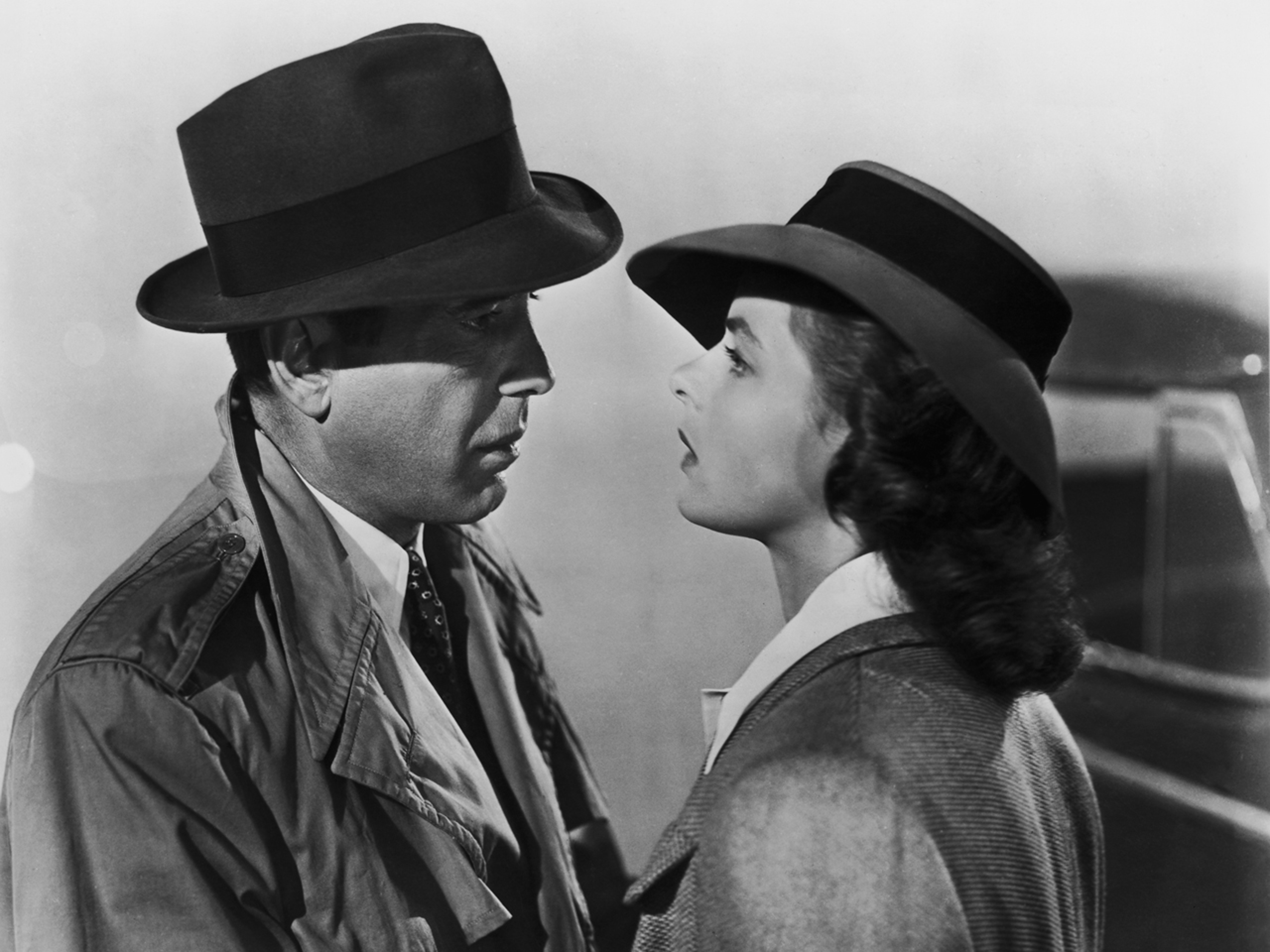I’ll Always Have ‘Casablanca’
Play It Again, Sam

The hand that wrote (part of) the script for the classic 1942 film Casablanca shook my ink-stained paw. “I hadn’t the foggiest notion” that anything out of the ordinary Hollywood movie was going to result, writer Howard Koch told me.
It was just going to be another product on the assembly line, everyone figured.
As time goes by, that was many moons ago, and Koch, along with most of the cast, has passed on and into cine-history. A new book, We’ll Always Have Casablanca by Noah Isenberg, sheds light on the miracle that it got made at all — mostly by immigrants, by the way.
Two unknown New Yorkers, Murray Burnett and Joan Alison, had flogged their play Everyone Goes to Rick’s around Broadway with no luck. They then tried Hollywood, where scripts go to get sunburned and die.
But with war raging in Europe and Hollywood anxious to make movies reeking of patriotism and romance, Warner Brothers shelled out $20,000. It was the most ever paid at that time for an unproduced play.
The timing was perfect. The manuscript hit producer Hal Wallis’s desk just weeks after the Pearl Harbor attack on December 7, 1941.
Two weeks after the movie was released in 1942, the North African town of Casablanca hit the headlines when it surrendered to General Patton’s invading U.S. troops. Fortune smiles on the lucky in Hollywood.
Wallis took a great liking to the story and nursed it along, working to get the screenplay written and the leads cast. A Ronald Reagan rumor bloomed and then quickly faded. Warner wanted Austrian beauty Hedy Lamarr, but MGM wouldn’t loan her. Film glory flitted away.
Wallis had his eye on Bogart from the get-go. Bogie, 42, wanted a break after a series of gangster movies but was unhappy because his character, Rick, didn’t get the girl.
Tough guy George Raft campaigned for the part but lost out. Paul Henreid wasn’t Wallis’s first choice as the valiant anti-fascist but got the part — despite unhappiness that though he got the girl, Ilsa, played by Ingrid Bergman, she was in love with Rick.
Two brash New York twins, Philip and Julius Epstein, were brought in to write the script and filled it with memorable wisecracks before being called to Washington to work on the patriotic series Why We Fight.
Koch fleshed it out with the deeper aspects of war and the plight of refugees trying to escape Europe. Warner pro Casey Robinson wrote the love scenes. Just how much of the final script each wrote later became highly controversial.
Meanwhile, Warner fought the film censors. You wouldn’t want the boys going off to battle seeing a movie that involved infidelity, would you? In the play, Ilsa goes to bed with Rick in an effort to get precious letters of transit that would allow her Nazi fighter Henreid to flee Casablanca and continue the fight.
But in the movie, there’s the scene where Ilsa goes to Rick’s nightclub office to get the letters one way or the other. It’s up to the moviegoer to decide whether they do IT or not.
But wait — a flashback shows Rick and Ilsa having a pre-war fling in Paris. But that’s okay because Ilsa believed that her husband was dead, but he wasn’t. During shooting, script pages were sometimes handed to the actors just before the cameras rolled.
Much debated was an ending. Finally, it was decided that in the moral and patriotic climate of the time, Ilsa had to leave with her heroic husband, whom she loved, to help him continue the noble fight no matter how she felt and not run off with Rick, even though their love was passionately rekindled.
One day, actor Peter Lorre got a sound man to hook speakers in the room where director Michael Curtiz would have afternoon trysts with young actresses. The sounds of vigorous lovemaking echoed through the building.
Dooley Wilson, the piano player who so hauntingly sang “As Time Goes By,” couldn’t play the piano. Someone faked it. Warner chiefs wanted the song left out, but thankfully it remained.
Bergman once said, “I kissed Bogart but never really knew him.”
Casablanca won three Oscars for best picture, best screenplay, and best directing. It’s my favorite all-time movie, and when I finish this column, I’m going to dig out the DVD — and play it again.



